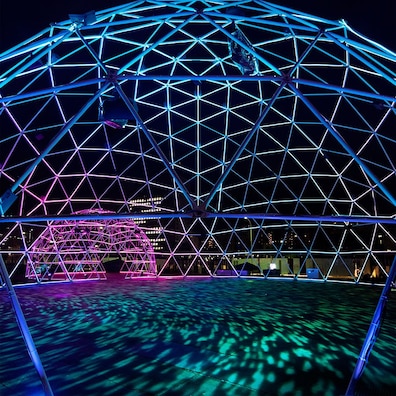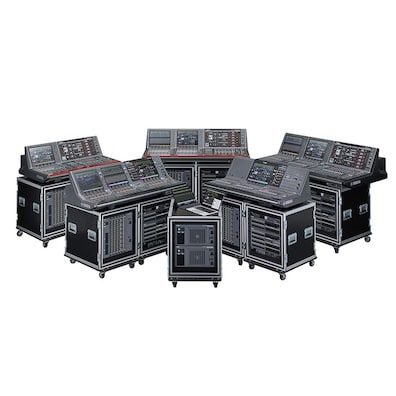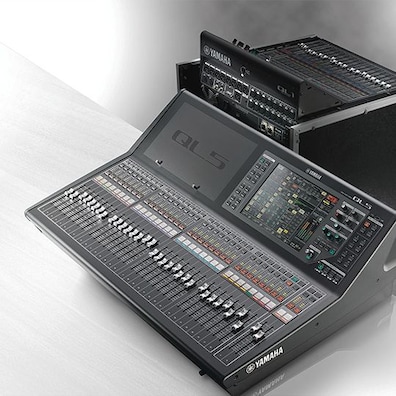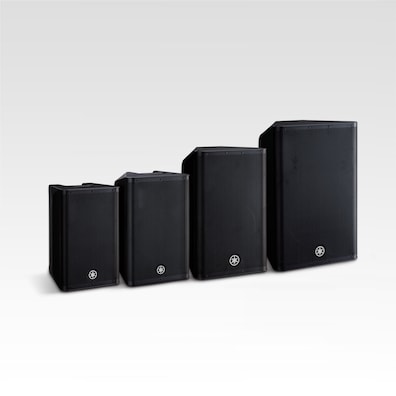Sync-Beat Success - Unique Concert Celebrates 70 Years Of Yamaha Music School

In May 2024, Yamaha Music School celebrated its 70th anniversary with a unique concert at the Yamaha Music Hall in Ginza, Tokyo. Bringing together renowned Japanese pop/rock duo Sukima Switch and pre-recorded performances by 330 amateur musicians, the Yamaha Music School x Sukima Switch Sync-Beat Concert was made possible by the immersive sound of a Yamaha Active Field Control (AFC) system.
For the past 70 years, Yamaha has developed innovative music teaching techniques and courses through its Yamaha Music Schools and worldwide partnerships. Catering for all ages, since the opening of the first Yamaha Music School in 1954 in Japan, more than five million students have received lessons from over 18,000 teachers at more than 4,500 different locations. To celebrate this landmark anniversary, a unique concert was arranged which highlighted Yamaha Music Schools’ commitment to 'the joy of music for all'.
COVID-19 pandemic restrictions saw Yamaha develop the ‘Speaker Orchestra’, which was intended to build connections between people through music, while minimizing physical contact. It aimed to replicate a symphony orchestra by placing multiple speakers on a stage, each in the correct position of a musician, with the sound of that musician - live from a remote location or recorded - played back through the speaker using the 3D sound imaging technology of Yamaha’s AFC Image system.
The research proved that the Speaker Orchestra could also offer other benefits. These included enabling ensemble performances to take place literally across time and space, allowing orchestral performances on stages which would not normally be suitable and enabling hearing-impaired individuals to experience music by touching the vibrations of the speakers.
THE CHALLENGE
For the Yamaha Music School x Sukima Switch Sync-Beat Concert, Michio Takagi, Immersive Engineer for systems integrator SED Co., Ltd, was tasked with bringing together the Sukima Switch duo and 330 musicians to perform together.

Of course co-ordinating such a large group of musicians on stage would be a major challenge, due to the space requirements, logistics and time needed for setup and sound checking.
To overcome these challenges, each participant was asked to submit a sound and video recording of their individual performance. These recordings could then be played back in synchronisation with Sukima Switch playing live, with the performers visible to the audience on a large video screen.

“It would have been difficult to play the parts of so many musicians back using a conventional system, because there would be issues with spanning the audio across multiple speakers, changing the position of sounds during the performance and other potential problems,” says Mr Takagi.

THE SOLUTION
The recordings submitted by the amateur musicians were mixed on a RIVAGE PM3 digital mixing system and consolidated into 15 object-based audio tracks. Along with the live vocal and keyboard performance by Sukima Switch, they were rendered with AFC Image, distributed via a Dante network and routed through an immersive system of 28 Yamaha DZR series and two DXR series powered loudspeakers. A Yamaha QL5 digital mixing console was also used to provide in-ear monitor mixes for Sukima Switch and for a stereo downmix, which was streamed online.
The result was a performance which emulated a large group of musicians performing together in real-time, bypassing the limitations of time and place.
The 200 member audience enjoyed renditions of Jidai by singer-songwriter Miyuki Nakajima and the Sukima Switch song Zenryoku Shounen, as well as interviews with participants, videos of Yamaha Music School instructors and demonstrations of the AFC system.
Mr Takagi highlighted that a major advantage of Yamaha’s AFC system for live entertainment is that it can be set up for a multi-channel performance much more quickly, efficiently and flexibly than traditional systems.
For this event another advantage was that, while the Yamaha Hall is dedicated to classical music and has rich acoustics, the studio used for the pre-production setup and testing had much less reverberation. Here, the AFC 3D reverb function was used to accurately replicate the acoustics of the Yamaha Hall. Mr Takagi commented that the reverb quality was exceptionally high and reproduced the concert hall environment very effectively.
He also expressed confidence in the system’s stability, emphasizing the robustness of the integration between the software and hardware, which ensures trouble-free operation in the critical live performance environment. “Using AFC not only enhances the musical experience, but also greatly aids in creating spatial effects, thereby broadening the range of expressive possibilities,” he said.

Sukima Switch’s Takuya Ōhashi and Shintarō Tokita added, "It felt like we were playing with excellent supporting musicians, as we do at our regular concerts. It was particularly satisfying to perform with amateur musicians, the people who usually listen to our music.
“With this system, it seems possible to perform with 1,000 or even 10,000 people. This could pave the way for a new culture of music.”

Location
Ginza, Japan












